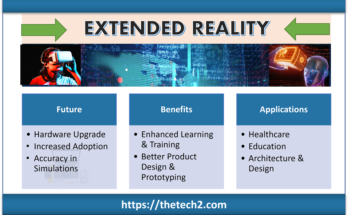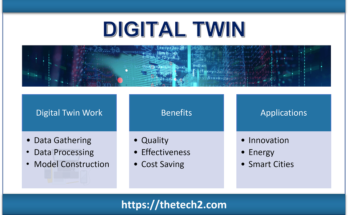Quantum computing is a sort of computing that performs operations on data by utilizing quantum-mechanical phenomena such as superposition and entanglement. Unlike traditional computers, which use bits that can only be in one of two states (0 or 1), quantum computers use qubits, which can be in numerous states simultaneously. As a result, quantum computers can perform certain computations much faster than traditional computers.

Quantum computers can be constructed using various physical systems, including superconducting circuits, trapped ions, and photons. These systems can be manipulated and measured with the help of a collection of quantum gates, which are analogous to the logic gates used in classical computing.
Quantum computing can transform areas like cryptography, drug discovery, and optimization. However, quantum computers are still in their infancy, and practical quantum computers capable of outperforming classical computers for specific tasks have only lately been demonstrated. Furthermore, building and running quantum computers is difficult because they are susceptible to environmental noise and require complex cooling and isolation methods to maintain the qubits’ delicate quantum states.
Quantum Supremacy
The capacity of a quantum computer to execute a computation that is beyond the reach of the world’s most influential classical supercomputers is called quantum supremacy. It is a significant step forward in the evolution of quantum computing and has been the subject of extensive study and debate in recent years.
Google announced in 2019 that it had attained quantum supremacy with its 53-qubit quantum computer, Sycamore. The team demonstrated that their quantum computer could complete a task that would take Summit, the world’s most influential classical supercomputer, roughly 10,000 years to complete.
Sycamore was tasked with solving a random sampling issue, which entails generating random numbers with a specific distribution. While this task may not have practical applications, it showed that quantum computers could handle problems in ways that classical computers cannot.
Quantity supremacy is not the same as a quantum advantage, which refers to a quantum computer’s ability to solve a practical issue that a classical computer cannot. Quantum advantage is regarded as a more important landmark in the development of practical quantum computing.
While quantum supremacy is an impressive accomplishment, quantum computers have a long way to go before they can be used for practical applications. Improving the reliability and scalability of quantum hardware, developing novel quantum algorithms and software, and discovering practical applications for quantum computing are among the challenges that must be addressed.
How Do Quantum Computers Work?
Quantum computers use quantum mechanics principles to manipulate quantum bits (qubits) to perform certain computations much faster than classical computers.
A qubit can exist in a superposition of states, implying it can represent 0 and 1. This enables quantum computers to conduct many calculations in parallel, significantly speeding up inevitable problems.
Quantum computers use a collection of quantum gates similar to the logic gates used in classical computing to manipulate qubits. Quantum computers can use these gates to execute superposition, entanglement, and measurement operations.
A qubit can symbolize multiple states simultaneously, thanks to superposition. A qubit, for example, can be in a superposition of 0 and 1, which means it can represent both 0 and 1.
Entanglement is a phenomenon in which two qubits correlate to the point where their states rely on one another. This enables quantum computers to execute computations that classical computers cannot.
Measurement determines the state of a qubit, which is necessary for retrieving the outcomes of a quantum computation.
Quantum computers can be constructed using various physical systems, including superconducting circuits, trapped ions, and photons. However, building and running quantum computers is difficult because they are susceptible to environmental noise and require complex cooling and isolation methods to keep their qubits in their delicate quantum states.
Making Quantum Computers Useful
Quantum computers can potentially transform many disciplines, including cryptography and drug discovery. To make them usable, however, several challenges must be overcome, including improving the reliability and scalability of quantum hardware, developing novel quantum algorithms and software, and discovering practical applications for quantum computing.
Here are some suggestions for making quantum computers more useful:
Hardware Enhancements
The first stage will be to develop more dependable and scalable quantum hardware. This is possible thanks to materials science, engineering, and manufacturing breakthroughs. Many companies are trying to create more stable and error-corrected qubits, which are the fundamental building blocks of quantum computers.
Creating Quantum Algorithms
Quantum algorithms are the quantum computer equivalents of conventional algorithms. They are intended to solve issues that would be difficult or impossible to solve with traditional computers. Researchers are working on new quantum algorithms, ranging from supply chain optimization to simulating complex molecules.
Quantum Software Development
Quantum software is required to program quantum computers and execute quantum algorithms. This contains programming, simulation, and debugging tools. Several software companies are developing quantum platforms to help developers construct quantum applications.
Finding Useful Applications
The ultimate aim of quantum computing is to discover valuable applications that can benefit society. This necessitates identifying problems that lend themselves well to quantum computing and creating algorithms to solve them. Cryptography, optimization, machine learning, and drug discovery are potential application areas.
Collaboration
Because quantum computing is complex and interdisciplinary, researchers, engineers, and business partners must collaborate. Researchers can advance the field and make quantum computers more useful by collaborating and sharing information, resources, and expertise.
You may be interested in more Big Data topics.



4 Comments on “Quantum Computing”